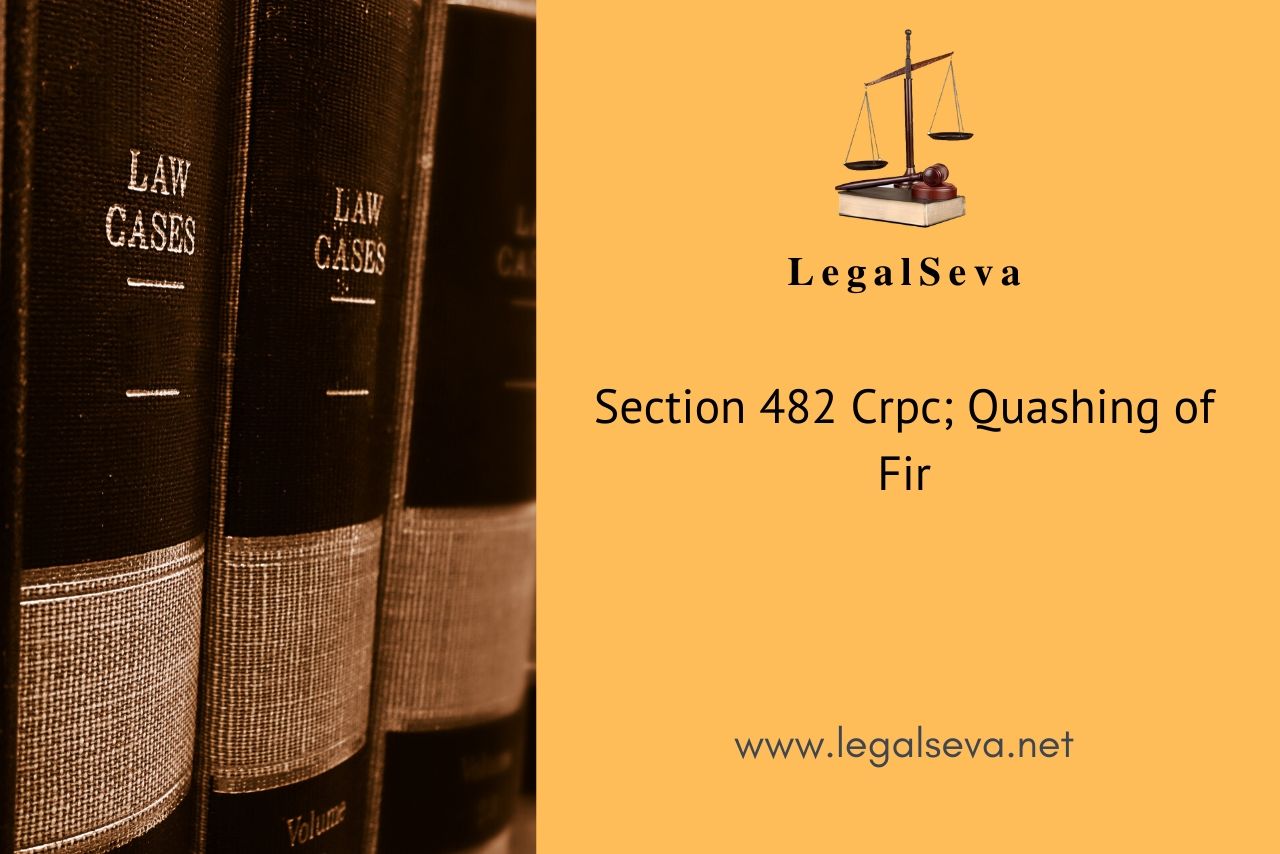Last Updated on December 7, 2019 by Legalseva.net
Quashing of the FIR under Section 482 of the Code of Criminal Procedure, 1908
The journey of any criminal case in India, begins with the filing of the First Information Report (hereinto referred to as the FIR) under section 154 of the Code of Criminal Procedure, 1908 (hereinto referred to as Cr.P.C.), wherein, every person, against whom a genuine wrong has been committed or believes that a wrong has been committed against that person, s/he can approach the concerned police station and get his/her FIR registered, to seek a redressal from the court of law. One thing which needs to be noted, is that at the first instance, the police generally does not encourage the filing of the FIR and persuades the people to solve the matter amicably or at the max, takes down the . But, if the people fail to reach any amicable solution, then seeking remedy from the court of law becomes the only viable option.
Also Read- GROUNDS FOR QUASHING OF FIR
So how is an FIR quashed? If one gives a thorough reading to Section 482 of CrPC, it says, “Saving of inherent powers of High Court Nothing in this Code shall be deemed to limit or affect the inherent powers of the High Court to make such orders as may be necessary to give effect to any order under this Code, or to prevent abuse of the process of any Court or otherwise to secure the ends of justice.” Though, it does not talk about quashing per se directly, but, this is what the wider interpretation of the section is, giving a wide arrays of power to the High Court. Section 482, though, hasn’t given the details of that what exactly constitutes the inherent power of court. In that sense, the Code is very vague as it doesn’t lay out the grounds on which the foundations of the inherent power of court lay.
Also Read- HOW TO QUASH FIR IN CHANDIGARH AT HIGH COURT
Furthermore, there is no parity in the judgments of the Supreme Court of India with regard to the application of Section 482 of CrPC. Consequently, the application of section 482 of CrPC is a very agitated issue in litigation along with being a strongly debated concept in the legal academic circles. In the exercise of the extra-ordinary power or the inherent powers under Section 482 of the Code of Criminal Procedure, the following points are given wherein such power could be exercised either to prevent abuse of the process of any Court or otherwise to secure the ends of justice. Section 482 of the code specifies that a High Court has got the power to act in any manner in order to make the two ends of justice meet. The following points are found common while reviewing an application under section 482:
Also Read- COMPROMISE QUASHING IN HIGH COURT CHANDIGARH
- Under this section, a High Court can quash an FIR if it thinks that the FIR which has been lodged is a false one and was done with the sole motive to defame and trouble the aggrieved person.
- If any person has been implicated and accused of a non-compoundable offence then he can approach a High Court and file a Writ Petition under Article 226 of the Indian Constitution read with Section 482 of CrPC.
- The burden of proof is on the petitioner to prove that he FIR has been lodged only for malicious reasons and to trouble the petitioner.
Also Read- QUASHING OF FIR IN HIGH COURT CHANDIGARH
But, the Supreme Court has time and again through its judgments have cautioned the High Courts to quash the FIRs only after scrutinizing the grounds thoroughly. In Munshiram v. State of Rajasthan & Anrs. [2018 5 SCC 678], the court reiterated the caution again while reviewing the quashed FIR.
You can also take assistance of expert criminal lawyers of Punjab and Haryana High Court in Chandigarh Panchkula Mohali for Quashing of FIR in Criminal case if required.
This post is written by Pritthish Roy from Vivekananda Institute of Professional Studies. For more info, please dial 99888-17966.


